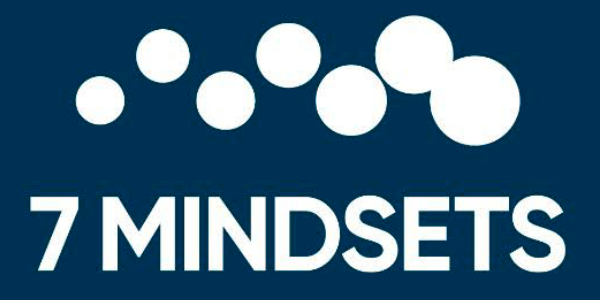A wise man once shared with me a valuable perspective. He told me, “When I was 18, all I cared about was what other people thought of me. When I was in my 40’s, I decided to stop caring what other people thought about me. Now in my 60’s, I realize that people were rarely thinking of me, and when they were, they were wondering what I thought of them.”
I have heard that the fear of public speaking ranks just behind the fear of death and right before snakes. I’m not a fan at all of snakes, but I agree that speaking in front of others creates more anxiety than coming in contact with a slithering reptile.
To understand the roots of my public speaking fears, go back with me to 7th grade to Mr. Peace’s class. To this day, I’m not sure how it happened, but I cursed without realizing it while giving my presentation. As laughter arose in the classroom, I thought it was directed at me, rather than at a word that I was not even aware I had said. It was humiliating and scarred me for life. To say I became self-conscious is an understatement. Even now, public speaking or presenting to small groups can be a scary venture for me.
I believe the biggest issues around the fear of public speaking are rooted in our self-consciousness… our fear of being seen and of being judged.
Knowing that communication and presenting are essential skills to my own goals in life, I work very hard to manage my nerves and use public platforms to my benefit.
Along my journey of stellar presentations and epic failures, I have picked up some tips and strategies from the very best presenters I know… excellent speakers who know how to use these techniques to their advantage.
Here are 7 mind relaxation tips that will allow you to manage your nerves and take your presentations to a whole new level:
1 – Know you have earned the right
I remember an interview with Jack Nicklaus, one of the greatest golfers of all times. Known for his ability to perform under pressure, he was once asked the secret of calming his nerves. “It is simple” he said. “I focus so hard on the next shot, there is no room in my mind to be nervous.”
I have found that when I think about benefiting the people in the audience, something I say will make a difference in their lives. By focusing my energy on the opportunity at hand, I gain greater confidence and a sense of purpose that can override negative, fear-based thinking.
When you are presenting, people believe you have something to say. You have earned the right to share. Build from this perspective. Make the purpose of your presentation to impact the people to whom you are presenting… not to make yourself look good. Putting your attention on this will take it off your nerves where self-doubt germinates.
2 – Start big
Make sure the first words you say are said loudly and with big energy.
First, this helps release built-up tension. It also sparks new found energy inside of you that will help engage your audience. Don’t discount the importance of enunciation. You can even over-enunciate a bit which has the same effect as speaking louder.
When you muster the courage and strength in those first moments, it sets the tone, calms the butterflies, and puts you in the mindset you need to inform and inspire. Think of it as getting a great start out of the blocks in a race; it creates the momentum you need to be your best.
3 – Find your “islands of energy”
One of the best presenters I know is my partner Scott Shickler. He taught me a technique to draw energy from the audience.
In every presentation, there will be people who are disengaged and others who believe you can say nothing wrong. They will be the ones up front with their eyes focused right on you. There is no better confidence-builder or nerve-eliminator than seeing engaged audience members. From time to time, make sure to look at your “islands of energy” and let their positive energy fuel your inspiring message.
4 – Create space in your presentation
It’s challenging to stand up and talk for long stretches of time. It’s nearly impossible for the current human attention span to allow audience members to stay engaged to a lengthy barrage of words.
Create space in your presentation. Using videos, asking the audience questions, and facilitating activities and group discussions are great tools. They take some pressure off and allow you the time to slow down, take a breath, and gather your thoughts.
5 – Make the jump
A friend once was told me that presenting is like competitive diving. You jump, do your thing, and then assess how you did after emerging from the water. If you try to think in the air, you will almost surely fail. You just have to let your experience and ability do their part.
Think of a presentation in the same way. Keep your focus on the audience–like a diver focuses on the water. Never evaluate or judge yourself in the middle of your talk. Make the jump, and know there will be plenty of time to evaluate yourself after the fact.
6 – Perfect a handful of stories and jokes
Mark Twain was the one of the greatest orators of his day. He was so good, people would follow him around trying to learn his secrets. He could show up without any preparation, and shortly after being given a topic, speak eloquently for hours.
Later in life, he shared his secret. He had accumulated an arsenal of stories. He had practiced like a good comedian practices jokes and perfected every pause and inflection. They became the foundation of all his presentations and flowed with confidence.
Start building your database of stories that engage people. Practice them over lunch and with your family and friends. They can become the scaffolding and support structures for all of your presentations. Once you know they work, they can provide great confidence and momentum in your speeches.
7 – Don’t forget the little things
When we are feeling nervous, the small, simple things often fly out of the window first.
Remember to breathe. Think “blue sky in and gray sky out.” Believe it or not, I learned that little tip from an American Girl movie I watched with my daughter.
Never underestimate the difference a positive mental attitude makes. Listen to inspirational or energizing music prior to your speech. Stir up the emotion to get you in the zone.
And last, but certainly not least… don’t forget that glass of water. Cotton mouth on stage is the worst!
Every presentation is an opportunity–a chance for you to share your vision and knowledge. Let the world hear what you have to say. We each have information and perspectives that matter. To dodge these opportunities or approach them passively will leave potential on the table.
Don’t let the nerves keep you down–or worse, strip you of your authenticity. You have a wonderful voice. Find it, and then share it with the world!
Please share your tips for calming the mind before presentations.



